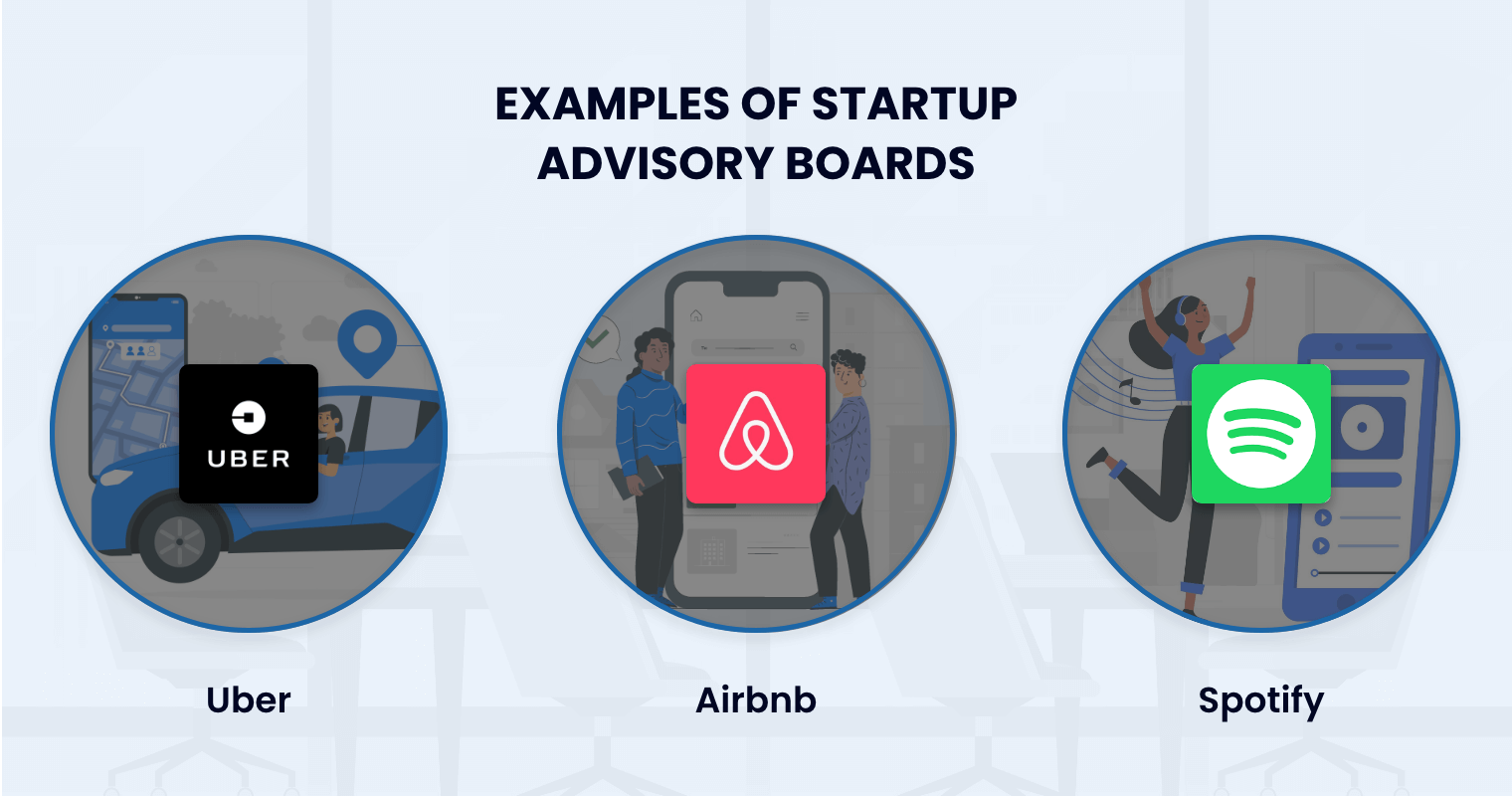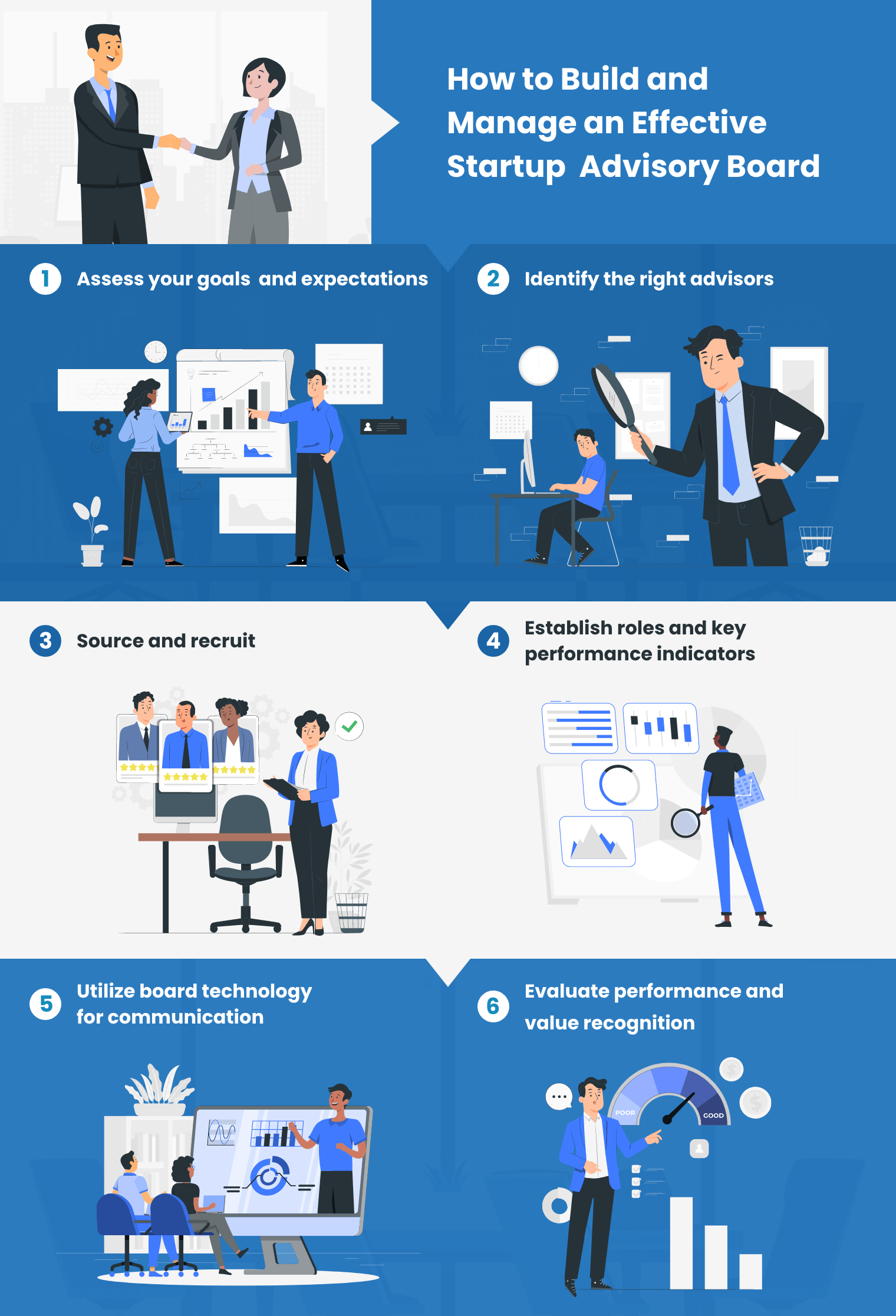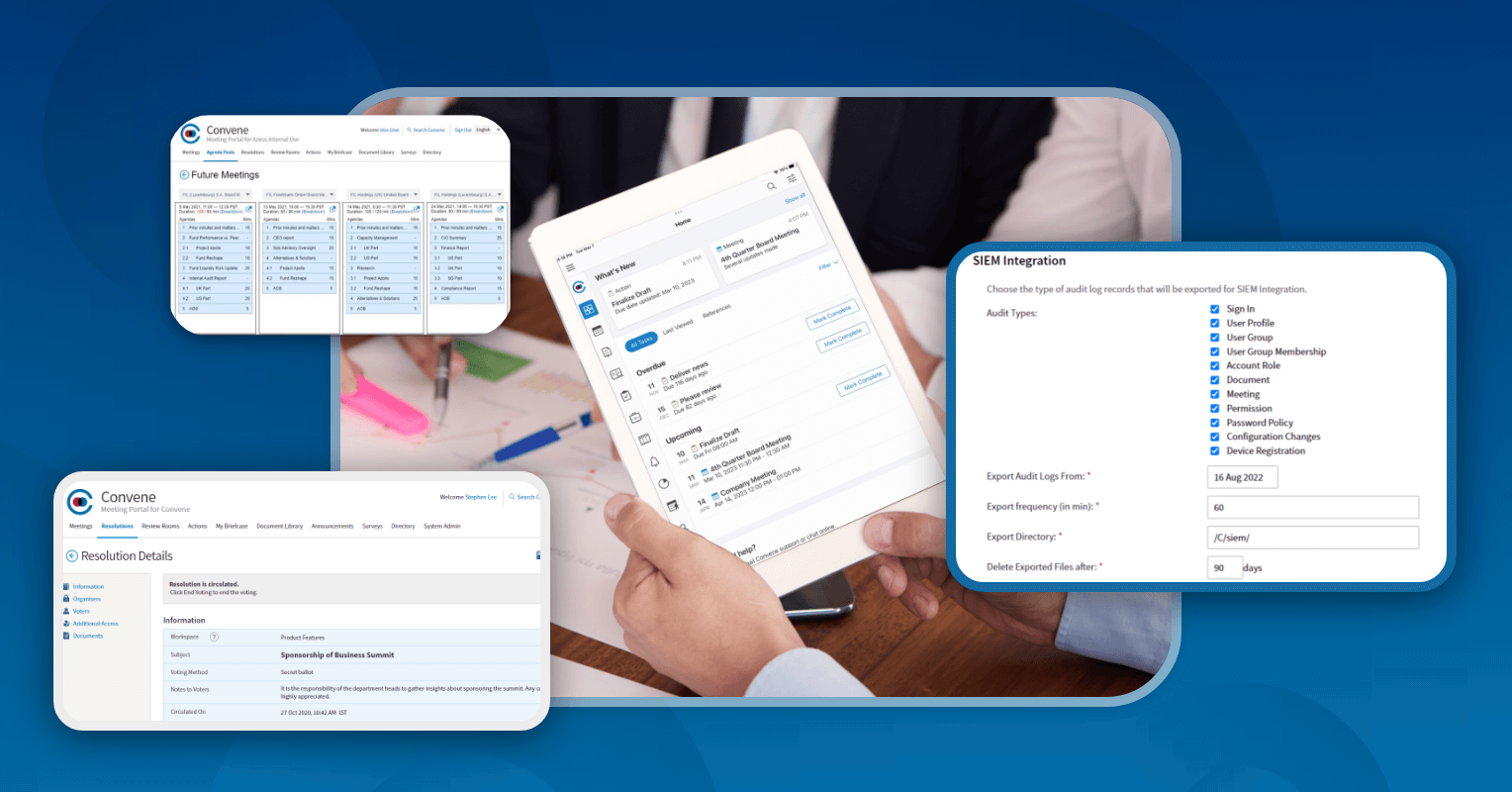Building a business from the ground up is a big challenge, as it may require you to be on top of everything — from overarching strategy to daily operations. Yet, striving to oversee every facet of your business can become overwhelming, leading to critical oversights of plans and actions.
As a startup entrepreneur, you’re expected to wear multiple hats across diverse business aspects. However, attracting top-tier talent to complement your expertise and fill gaps should be a primary objective. Here’s where an advisory board comes into the game, offering valuable insights to foster both growth and stability.
But what is an advisory board and how can it specifically benefit startups in navigating the dynamic business landscape? Let’s find out below about its roles, do advisory board members get paid, and how to assemble your own board.
What is a startup advisory board?
A startup advisory board comprises subject matter experts and experienced individuals who provide insights, expertise, and guidance to increase the startup’s chance of success. Its role is to purely offer counsel and mentorship to the startup’s leadership. Unlike the board of directors, the startup advisory board lacks fiduciary duties as it holds no legal responsibilities and decision-making authority.
Startup advisory boards act as strategic partners. With their industry knowledge, diverse experience, and networks, they empower startups to capitalize on opportunities, anticipate challenges, and make informed decisions.
What do startup advisory boards do?

From strategic advice to coaching, startup advisors are equipped to help you steer towards success in your business. Here are the key roles they play:
- Provide guidance and expertise — Advisory board members offer guidance based on their experience and industry insights to navigate complex business challenges, emerging technologies, and market trends. They play a vital role in shaping the company’s strategic direction based on the insights and best practices they provide tailored to your startup’s needs.
- Assist with network and connections — Building an advisory board for your startup allows you to connect with their extensive networks and find potential customers, partners, talent, and investors, ultimately expanding your business’s reach and opportunities.
- Offer mentorship — The advisory board members serve as mentors and coaches for your management team on leadership, team building, and personal growth.
- Offer business support — Beyond high-level guidance, advisory boards can assist with several business operations, such as business model strategy, startup term sheet, and mergers and acquisitions.
Due to the flexible nature of these boards, their specific roles and expectations should be established in their Charter, along with the board’s structure and procedures. This ensures that the advisory board does its functions around its purpose and does not create issues such as shadow directorship.
When do you need an advisory board for your startup?
According to the State of Market Report by the Advisory Board Centre, most startups and scaleups traditionally rely on informal advisors and mentors. However, startups now require more structured guidance in their evolving needs, such as business investment literacy and execution gap.
Here are some business situations where you need a startup advisory board:
- Early-stage startup — As an entrepreneur, you are expected to be well-equipped to handle operations. But, having a helping hand to provide mentorship and expert opinions will not hurt anyone. If you are at the initial stages of launching your business, having an advisory board can help navigate hurdles, like adopting business frameworks and risk management.
- Lacking expertise and skills — If your team lacks expertise in key business areas such as finance or marketing, assembling an advisory board can help fill those gaps. These professionals can assist in defining or refining your company’s direction.
- Scaling the business — As your startup grows, complex challenges associated with rapid expansion are inevitable. Advisory boards can provide insights and best practices for entering new markets, managing operations, restructuring crisis management, enhancing company culture, or tackling a business problem. Sound advice is vital in making informed decisions during these stages.
- Accessing networks — Advisors usually have impressive track records of connections they’ve built through experience. They can open doors for your startup to get positive affiliations with key opinion leaders and influencers.
- Instilling investor confidence — Having a reputable advisory board can bolster your startup’s credibility and instill confidence in potential investors, partners, and customers, which can be particularly beneficial during fundraising efforts.
What are some of the challenges in managing startup advisory boards?
While startups can greatly benefit from forming advisory boards, managing them might present its own set of challenges, including:
- Balancing perspectives — Advisors within your board may have diverse opinions and viewpoints, sometimes conflicting. Typical areas of contention include financial resource allocation, market focus disputes, operational approaches, and organizational change management. One way to alleviate this is by respecting each perspective while finding common ground and ensuring that everyone’s heard and considered.
- Ensuring commitment and engagement — Keeping your startup advisors engaged and committed can be difficult particularly when oversight is limited. They may become busy and distracted, leading to poor attendance, lack of input, and implausible feedback. To avoid this, clearly establish their roles and compensation as well as your communication structures. Or, select the right people who are enthusiastic or passionate about your vision and mission.
- Managing expectations — As your startup grows and evolves, your needs and dynamics may change, requiring adjustments to the advisory board. Members may develop different expectations regarding their roles, responsibilities, and contributions. Proactively clarifying expectations and maintaining regular communication on progress and updates are essential to establish clear objectives for everyone.
Do advisory boards get paid?
Investing in a highly skilled advisory board is necessary to ensure your startup is operating as per best practices. Making the most of the guidance of an advisory board can prove to be a cost-effective investment for your business.
Startup advisory board compensation is typically given, but it can vary based on several factors, including the startup’s financial situation, level of expertise and involvement of the advisors, and rates charged by each advisor. Generally, startup advisors are compensated with equity or stock options for their services. However, some startups may opt to offer cash compensation or other form of remuneration to advisors. Compensation agreements can be established through per-meeting, annual retainer, post-launch profits, or expenses only. Startup advisory board compensation is negotiated in the advisory board agreement.
Startups should carefully consider the advisors’ value and create fair compensation reflecting their contributions.
Examples of Startup Advisory Boards

If you’re still pondering whether an advisory board would benefit your startup, consider these companies and their advisory boards:
- Uber – The global ride-sharing giant established a Safety Advisory Board in 2015 comprised of security veterans and directors across the US. This board offers critical external counsel on Uber’s approach to safety management, processes, and technologies for regulatory compliance and consumer demand. Since its formation, the Safety Advisory Board has played a pivotal role in empowering Uber’s most crucial safety initiatives, including its commitment to safety reporting and creating industry-first programs like the Industry Sharing Safety Program.
- Airbnb – Revolutionizing the hospitality industry, this online platform for lodging and homestays developed its Host Advisory Board in 2020 to influence Airbnb’s policies, programs, and products. Since its inception, the board has provided feedback on topics like Diversity & Inclusion and Product/Policy Development for Hosts.
- Spotify – Following the controversies on COVID-19 misinformation involving Joe Rogan, the global audio streaming service established its Safety Advisory Board in 2022 to enhance content moderation and safety on its platform. Consisting of experts on online safety, the council provides guidance on policy development and safety features, equity, impact, and academic research.
Key Qualities to Look for in a Startup Advisor
Building an effective startup advisory board requires selecting individuals who will provide invaluable support throughout your startup journey. Identifying the right members to bring to your board can make them excellent assets. Here are traits startup advisors should possess:
- Rich industry experience — An effective startup advisory board member should have a deep understanding of your industry so they can offer valuable insights, examples, and perspectives tailored to your needs.
- Deep passion for your industry — Beyond knowledge, seek advisors who are passionate about your niche and startups in general. Such enthusiasm ensures they’re willing to support you at every stage of your business journey. You can assess this by asking about industry trends and their work related to your business. Passionate advisors not only believe in your startup’s vision but also actively champion your growth and success.
- Strong communication skills — Look for advisors who are great communicators internally and externally. They should be able to convey their perspectives to the management and utilize their extensive connections. Let them open doors for partnerships and opportunities that benefit your startup.
- Innovative thinking and problem-solving skills — A good advisor possesses strong strategic thinking skills and the ability to anticipate and address challenges. Seek individuals who like to challenge the status quo by offering innovative solutions driving positive impact for your business.
How to Build and Manage an Effective Startup Advisory Board

Recognizing the right qualities of an advisor is just the beginning; the key is translating this insight into action. Here are six actionable steps to help you assemble your startup advisory board:
Assess your goals and expectations
Before anything else, it’s important to clearly define first what you hope to achieve with your advisory board. Where are the gaps? Are you struggling with product development, fundraising, or navigating regulatory hurdles? Conduct a SWOT (Strengths, Weaknesses, Opportunities, and Threats) analysis to pinpoint areas lacking expertise. Determine how these goals contribute to your vision, mission, and strategies.
Additionally, you would also want to assess how building an advisory board can bring a significant positive ROI for your startup.
Identify the right advisors
Once you’ve outlined your startup’s needs and goals, identify ideal candidates. Draft job descriptions or a set of qualifications to guide your search. Apart from the key qualities of how to become an advisory board member mentioned, you should also consider casting advisors with different backgrounds, expertise, and networks. Remember, a diverse advisory board can help you anticipate challenges from various areas and provide diverse perspectives.
Moreover, depending on your startup’s needs, it’s advisable to consider the size of your advisory board so everyone can take part in contributing their insights. Most advisory boards consist of no more than five or six members.
Source and recruit
Looking for the right people on your board can be challenging, but here are some places or events you can explore:
- Networking events
- Partners
- Online communities (LinkedIn groups, Facebook groups, industry forums, etc.)
- Email outreach
Engage with multiple candidates to shortlist those who align with your startup’s needs and culture. Once selected, provide a brief on how to join an advisory board in your startup. Have them sign a memorandum of understanding (MoU) or a formal document to ensure both parties are clear with the expectations of commitment, involvement, and compensation.
Establish roles and key performance indicators (KPIs)
An MoU is the beginning of setting clear expectations with your startup advisory board. By giving them high-level goals first, you can communicate better their roles, responsibilities, and time commitments, and how these contribute to working towards the startup’s success. Set also KPIs from which you can evaluate their involvement, such as attendance in meetings, participation in discussions, and the effectiveness of their recommendations.
Foster continuous communication and feedback to ensure transparency and accountability from the outset, helping you avoid misunderstandings and ensure everyone is aligned.
Utilize board technology for communication
To maximize productivity and ensure focused, goal-oriented discussions, establish a regular schedule for structured meetings with clear agendas. Treat these meetings as interactive sessions, encouraging both parties to actively seek input and provide feedback.
How to run an advisory meeting? Start leveraging board portal software for communication, collaboration, and decisions. Board portals, like Convene, streamline the process by offering tools, such as video conferencing, presenter tools, and document annotations to ensure participation during remote meetings.
You can also take advantage of the board portal’s pre-meeting features to instantly create meeting agendas and review documents. Moreover, such platforms can ensure secure communication between your advisory board and management with permission-based controls.
Evaluate performance and value recognition
Human beings thrive on feedback and validation, and the same applies to your startup’s advisory board. It’s crucial to keep them informed about their performance, their impact on the startup’s objectives, and your gratitude for their efforts. Regularly assess the effectiveness of your advisory board and make necessary adjustments along the way. Evaluate whether advisors are meeting expectations, if the board’s composition remains pertinent, and if any changes are needed to align with the evolving needs and goals of the startup.
Lastly, acknowledge and appreciate the contributions of your advisory board members. Recognize their efforts publicly, highlight their achievements, and express gratitude for their support and guidance.
Empower Startups and Advisory Boards with Convene

Advisory boards serve as your guide in navigating challenges and identifying opportunities for your startup. Depending on your goals and requirements, forming an advisory board tailored to your key qualifications can provide invaluable insights into your actions and decisions.
Once your advisory board is selected and onboarded, maintaining alignment and efficiency becomes paramount. You may need a platform where all your meeting needs are kept — from documents to action items. That’s where Convene comes in — the trusted board portal for secure collaboration and decision-making. With Convene, you can optimize your workflows like:
- Streamlined meeting preparation and presentation with agenda builder and live meeting tools.
- Secure access and storage of meeting documents, proposals, and resolutions.
- Tracking the progress of actions from both the advisory board and management in one dashboard
- Gaining insights on meeting participation and activity reports through audit trails for transparency purposes.
See how Convene can empower your startup advisory board and management. Schedule a demo with us today!
Audrey is a Content Marketing Specialist at Convene, in charge of managing the production of quality content on the company’s website. A communication major keen on marketing, Audrey has been constantly seeking approaches to create tailored content—may it be about governance, digitalization, boards, or meetings—fit for the stakeholders. When not strategizing on the next ebook to produce, Audrey finds solitude in reading make-you-ugly-cry novels and listening to self-improvement podcasts.







![How to Create a Board Skill Matrix + Template [Free Download]](https://cdn.azeusconvene.com/wp-content/uploads/2024Q3_Jul_Board-of-Directors-Skills-Matrix-Whitepaper-A-Light.png)


